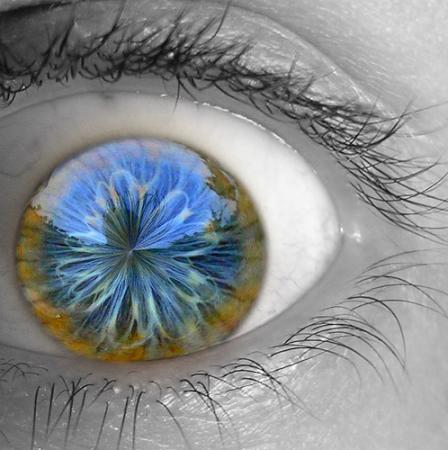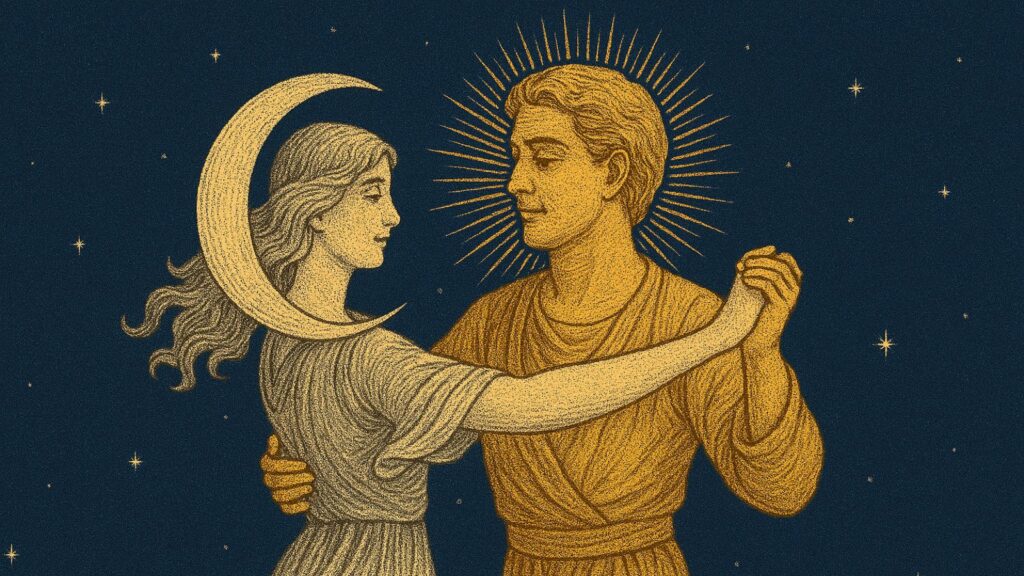Are you ready for a world with technologically telepathic, physically augement super soliders? Is it really all that easy to be a subject of psychical research? What is the difference between paranormal enthusiasts and serious science? Can Sylvia Browne do any more than she already has to damage the credibility of the field? These questions and more in this weeks Psi in the News!
- The Helene Reeder Memorial Fund has grants available for qualified individuals looking to conduct research into the subject of life after death. (Society for Psychical Research)
- May 10th and May 11th, Biola University will host the Neuroscience and Soul Conference. Invited speakers will address the role of consciousness studies in relation to Christian beliefs. (Biola University)
- Just in time for Rosemarie Pilkington’s upcoming talk at The Observatory on May 21st, Anomalist Books has released her latest work Espirit 2: Men and Women of Parapsychology, Personal Reflections. The book contains personal insights gathered from some of the leading contemporary parapsychologists regarding why they began, and more importantly continued, their deeper investigations of human consciousness. (Anomalist Books)
- Nancy Zingrone has posted a short introduction which gives an idea of her recent course for the Rhine Education Center presenting an introduction to parapsychology. (YouTube)
- In order to facilitate the inability of some critics to pursue in depth research on their own, and to aid the honestly curious, Dean Radin has created a “Show Me the Evidence” page which includes links to peer reviewed papers on psi phenomena. (Entangled Minds)
- The prevalence of recent reports on Near Death Experience has brought an interesting level of positivity to discussions of mortality as shown in this article discussing the experience of dying as entering an “ocean of peace.” (Herald Dispatch)
- There has also been an increasing amount of attention from many cultural commentators, including scientists, on thinking more about the post-mortem survival question. This has lead to the development of an interesting concept in religious studies, a secular afterlife. (Maclean’s)
- Brian Bethune, Editor for Maclean’s, discusses his research into afterlife beliefs on an episode of the Barry Morgan Show that aired May 3rd. (Barry Morgan Show)
- Klaus Fiedler, University of Heidlberg, and Joachim Krueger, Brown University, have a recently published paper which addresses some of the issues that they feel negate the validty of Daryl Bem’s retro-causality studies. (Sage Journals)
- Professor Caleb Lack is uploading some student films from his Science vs. Pseudo-Science course at University of Central Oklahoma. Unfortunately it’s unclear from the first video, dealing with “ghost hunting,” what hobbyists and media production crews have to do with science vs. pseudoscience. I hope that the course itself addresses more mature questions in regards to psychical research. (Great Plains Skeptic)
- Back in the 17th Century it was the Catholic church that took exception to the use of anomalous cognition, as evidenced by this treatise critiquing “The Divining Rod & Art of Dowsing In The Practice of Criminal Detection.” (Alastor Rare Books)
- Do skeptical accounts framed through science may actually lead people towards believing in Psi? A 2010 study at the University of Maryland found that participants were more likely to believe in ESP when told it has been scientifically disproven. Not conclusive by any means, but humorous. (Life in B Flat)
- Carlos Alvarado, current Scholar in Residence at the Rhine Research Center, has a couple of new parapsychologically relevant blog posts up on his fresh-minted WordPress site. (Carlos Alvarado)
- Religious philosopher, Dr. Michael Sudduth reports on progress with his upcoming book Survival and the Empirical World, including an abstract for the book which details Sudduth’s intention to provide “a philosophical exploration of the empirical approach to postmortem survival.” (Michael Sudduth)
- Parapsychology Foundation President, Lisette Coly is interviewed on the latest episode of the Psi Show. (The Psi Show)
- Missed this one last week – Graham Hancock reviews the post TED wrap up and provides links to the Huffington Post dialogue between Chris Anderson, and a number of leading scientists who are surprised at how poorly TED handled the situation. (Reality Sandwich)
- At a talk hosted by the Scottish Society for Psychical Research Rupert Sheldrake offered his own thoughts on TED, which they’ve kindly uploaded to SoundCloud for our listening pleasure. (Scottish Society for Psychical Research)
- Marc Demarest takes us through the winding authorial mystery that plagues the oft referenced expose of fraudulent mediumship, Revelations of a Spirit Medium (1891). (Chasing Down Emma)
- The authors of the PLOS One study detailing differences between memories of Near Death Experiences and “regular” memories provide some thoughts on the implications of their findings. (Science and Religion Today)
- Craig Weiler has published a fascinating article from a friend of mine named Sandy, in which she discusses some of the pros and cons on being a parapsychological test subject. It’s something that often goes unspoken, however being a test subject, even in research related to psi, can at times be rather stressful. (Weiler Psi Blog)
- In a follow up article Sandy has reposted a piece from her own blog describing her first experience participating in psychical research. (Weiler Psi Blog)
- Matters aren’t helped by the intermixing of professional scientists, ethusiastic amateurs, biased debunkers, over enthusiastic believers, and profiteers mixing in the same parapsychological pot as detailed in this new article from Hayley Stevens. (Hayley is a Ghost)
- Often researchers who claim more assumed credibility don’t fare much better, as detailed in another article on Craig Weiler’s blog, this one looking at the James Randi Education Foundation testing of Patricia Putt in 2009. The continued acceptance of sub-cultural beliefs as scientific positions is a constant thorn in the side of psychical research. (Weiler Psi Blog)
- In popular ghost hunting media electro magnetic frequencies often play a part in detecting the existence of supposed entities. The Paranormal Research Group website recently posted a link to a critical review of electromagnetic fields and ghostly paranormal phenomena that draws some of these assumptions into question. (Paranormal Research Group)
- Hayley’s post is titled “What Are You Afraid Of…” which brings up an interesting question. When we dive into the hazy world of extraordinary occurance we often don’t take into account the implications of what we might find. A new post on the International Academy of Consciousness page looks at what their research might mean, if true, for something as simple as shopping at a second hand store. We can scoff at the unreality of their assumptions, but to do so ignores the fact that as we investigate these areas, challenging and seemingly absurd questions can become very necessary to understanding what is going on. (International Academy of Consciousness)
- A new blog post from Otherworlds North East also takes a look at ethical issues that arise when investigating anomolies, and draws attention to the fact that we should always keep the living in mind, even when investigating the possibility of life after death. (Otherworld North East)
- Joining the military is a hard decision which will dramatically affect the rest of your life, with advances in the concept of “augmented soldiers” it might also make you a self-healing, telepathic super human. Post-combat reintegration with society is already difficult, with these advances it may become impossible. (Daily Mail)
- Marc Demarest provides a brief recapt of Leslie Price’s recent talk at the SPR on fraud and psychical research. Wonderful advice from one well practiced in the field. (Chasing Down Emma)
- A good example of fraudulent psychic claims comes up in recent news with reports that professional entertainer Sylvia Browne”s previous prediction of a missing teen’s death was unfounded. (ABC News)
- The International Academy of Consciousness has a page up on how to cause an Out of Body Experience, or at least increase your chances of experiencing one. (International Academy of Consciousness)
- Dr. James Lane, Research Director at the Monroe Institute, is featured in this brief interview discussing how his work with TMI relates to his deep interest in consciousness studies. (The Monroe Institute)
- A recent Wired article discusses the work of Dr. Sam Parnia, who has been active in redefining our ideas of death through his exploration of advancements in resuscitation medicine. (Wired UK)
- Chris French has a new article up on that sneaky ideomotor effect, a psychological phenomena where suggestion leads to often unnoticed muscular responses, and it’s role in mundane and psychical fraud. (Guardian UK)
- Sharon Hill, editor at Doubtful News, reports from the 2013 Phenomenology 105 conference in Gettysburg, Pennsylvania. The annual conference provided her with an ethnographic opportunity to study the world of mass mediated paranormal investigation. Having spent significant time with the scientists involved in these areas it’s rather funny to see how divergent the two worlds are. (CSICOP.org)
- Researchers at Bristol and at Yale University are investigating the development of our perception of “mind/body dualism” by looking at how children interpret their sense of identity in relation to the body. (Scientific American)
- Religious apparitions are a unique phenomena that seem to require a thoroughly cross-disciplinary approach to investigate. In a recent article from the Parasociology blog, the topic is tackled through the lense of psychical research. (Parasociology)
- Did Geraldine Cummin’s receive the last words of mountaineer George Herbert Mallory after his disappearance while scaling Mount Everest? Michael Tymn discusses Charles Fryer’s book, Geraldine Cummins: An Appreciation: The Inside Story of Ireland’s Greatest Medium, which discusses the communication. (White Crow Books)
- How do you draw popular attention to psi research? Looks like Bleiberg Entertainment opted for a cinematic cocktail of “Cocaine, Sex and Ghosts” for their upcoming flick, The Ganzfeld Experiment. (Best Horror Movies)
- ?How do you draw popular attention to psi research? Looks like Bleiberg Entertainment opted for a cinematic cocktail of “Cocaine, Sex and Ghosts” for their upcoming flick, The Ganzfeld Experiment. (Best Horror Movies)??SyFy Channel takes a path with a bit more tact in an upcoming documentary detailing post mortem attempts to contact famed Sci-Fi afficianado Forest J. Ackerman. (Quiet Earth)
- Although most Victorian spirit photography appears to be fraudulent, they still provide poignant and eerie insights into our cultures views of death and post-mortem survival. The web-magazine io9 has a new feature up exploring their ethereal resonance. (io9)
- In another post from Hayley Stevens, she offers us an honest appraisal of the Mr. Ghost EMF Detection device for iPhone. While paranormalists often equate EMF with “entity,” there is no evidence that this is the case, and to properly conduct research in this area requires much more than an iPhone app! (Hayley is a Ghost)
- J.H. Brennan’s latest book, Whisperers: The Secret History of the Spirit World, gets a brief review on Broad Art Vibe. (Broad Art Vibe)
Note: Special thanks to Tom Ruffles, of the Society for Psychical Research and Jack Hunter, Editor at Paranthropology Journal, for a number of links included in this edition of Reality Sandwich’s Psi-in-the-News.













